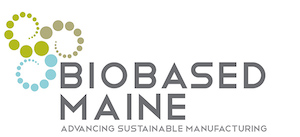Pulp and Paper’s Innovative Future

“Sense the Future” High Level Session at European Paper Week 2017.
As one of the rare mainstream industries that relies on a biobased, renewable, and fossil-free raw material, pulp and paper is poised to dominate.
That’s the outlook from Bernard de Galembert, Bioeconomy and Innovation Director at the Confederation of European Paper Industries (CEPI), writing in Bio-Based World News.
“It is oftentimes overlooked that the pulp and paper industry is itself an entirely bio-based industry, despite this being the DNA of who we are,” de Galembert notes.
Exciting innovations like wood nanocellulose and the growing demand for renewable materials, de Galembert argues, demonstrate that the pulp and paper industry is headed towards a bright future.
And his words apply to pulp and paper companies across the globe—including in Maine.
Right here in Maine, our pulp and paper industry is also innovating. In 2017, Biobased Maine helped Sappi North America issue an RFP to find a biobased technology for potential co-location at the Westbrook paper mill. Also, the Maine Forest Economy Growth Initiative, a collaborative effort led by representatives from numerous Maine forest industries, is focused on finding the best new emerging technologies, some of which may help diversify production and boost profits at existing pulp and paper mills.
“As we navigate towards the future, we as an industry will stand by the motto that theoretically everything that is based on fossil material today will be able to be based on fiber in the future. This is challenge we have set for ourselves and one which we intend to meet.”—Bernard de Galembert
The industry’s innovations and potential were also on display at CEPI’s “European Paper Week,” de Galembert writes:
To mark its future-orientated theme ‘Sense the Future’, European Paper Week hosted the first ever European version of the Blue Sky Young Researchers and Innovation Awards where eight shortlisted candidates were invited to demonstrate their fiber-based inventions. We also hosted a novel innovation ‘Paper Expo’ which exhibited multiple, innovative paper-based products that can be used for purposes as diverse as human cell culture, aircraft structures and renewable, bio-based alternatives to plastic bottles.
“What was exhibited however was just a drop in the ocean when it comes to the full innovative potential of the industry,” de Galembert notes. “E.g. printed electronics on paper substrate, paper-based batteries, wood-based carbon fibre, hi-tech textile fiber, food additives (such as vanillin), biofuels, smart anti-counterfeiting packaging, etc.”
